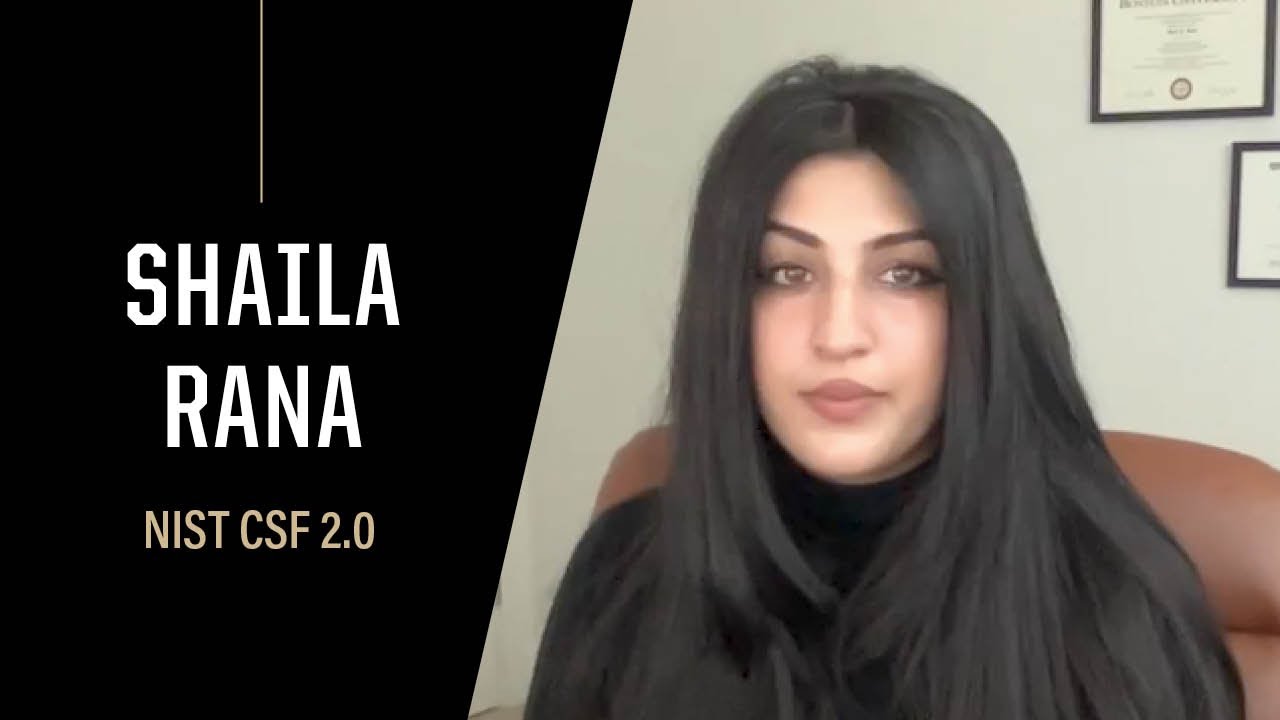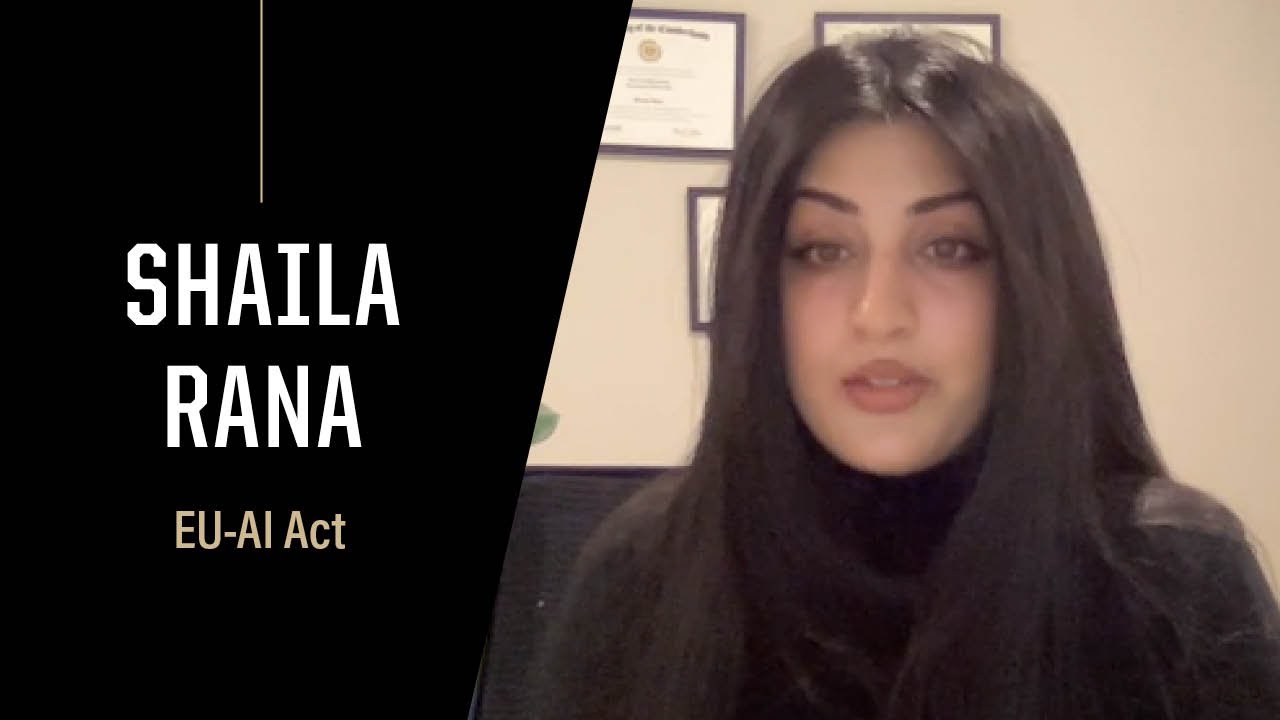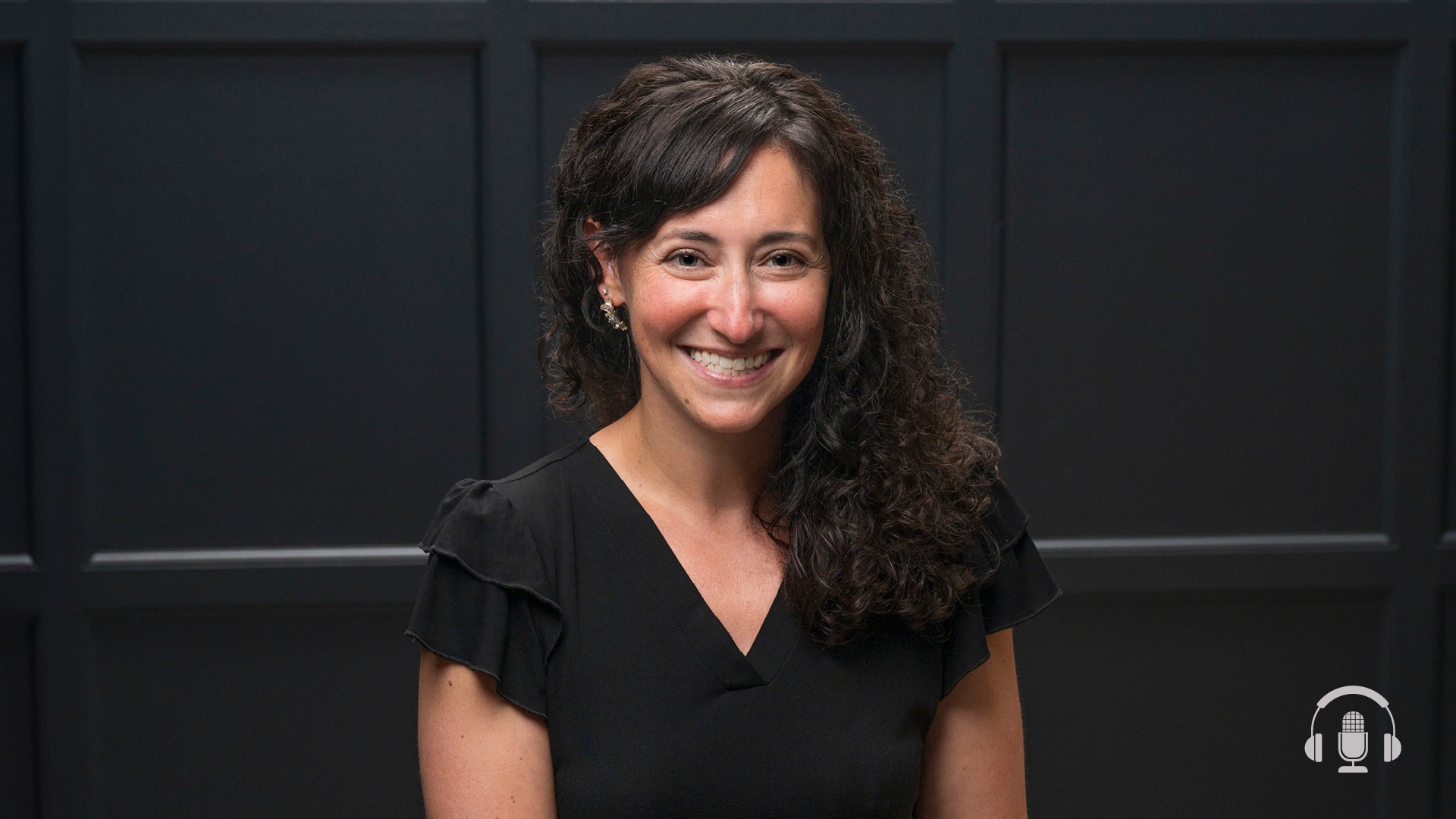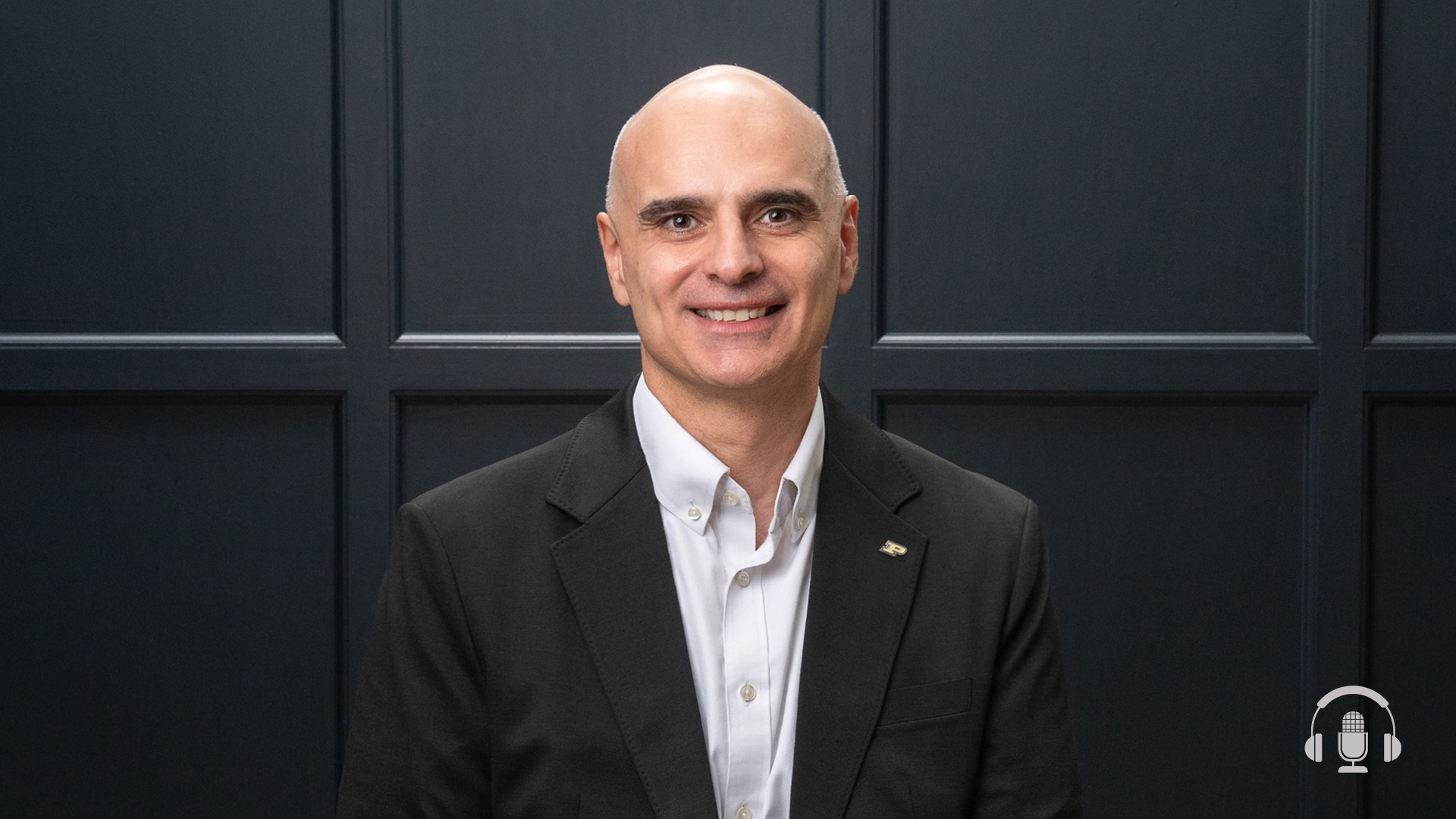Meet Purdue Global professor Shaila Rana: Using AI to our advantage

Purdue Global professor Shaila Rana is an expert in cybersecurity and AI. Her research focuses on uncovering how AI can be a boon for learners, while critically analyzing both its advantages and disadvantages, and she’s driven to help her students succeed in a developing field. (Photo by Fatma Sayed)
Passionate about addressing the personnel shortage in the tech industry, this professor helps her students make their break.
I’ve been seeing a lot of fearmongering when it comes to AI — about how it’s going to replace us, how it’s going to perpetuate false information. While it’s important to be mindful of what could go wrong, and while we do need legislation to protect against its misuse, it’s truly exciting to see how it’s going to augment what we can do. That’s why I specialize in AI education and focus my research on how AI can work to our advantage.
There’s so much AI can do to support us. It can serve as a tutor for students. It can create personalized learning plans. It can help with ideas and drive future research as well. It can give parenting advice. Parents who have kids with developmental delays or disabilities don’t always have access to their speech or occupational therapists — artificial intelligence can help find solutions to problems that come up, or it can even help regulate someone in a sensory crisis.
And the opportunities for building successful careers in a growing field are endless. There are hundreds of thousands of unfilled jobs in tech. For example, it’s hard for local police to catch cybercriminals because of the anonymity of the internet and crossing jurisdictions. But there’s also a lack of human capital and a lack of knowledge in how these systems work, of figuring out what crime actually took place.

There’s opportunity in the private sector, too. We need people in governance, risk and compliance (GRC); we need people who know how to secure networks, especially for small- to medium-sized businesses. Often, business owners don’t think they’d have any information an attacker would want, which is untrue. But they lack the resources and staff with the expertise necessary to implement adequate security programs.
I recently spoke at the Cybersecurity and Infrastructure Security Agency (CISA) Office of Privacy and promised that with Rhonda Chicone, another Purdue Global cybersecurity expert, we would help address the cybersecurity workforce shortage.
And addressing that shortage starts with education. Because here’s the caveat: A lot of these jobs require 5-10 years of experience plus certifications, and these certifications also require experience. For instance, the Certified Information Systems Security Professional (CISSP) is a certification that requires at least five years of experience. But that experience requirement goes down to three years when you have a master’s degree. So, I encourage people who are trying to find their way into the tech field to start with getting a higher degree and some certifications.
I try to make myself available to students as much as I can. It’s not just about the course. I also review students’ resumés, connect them to job opportunities, tell them that after the course is finished, I’m here to help with career advice or answer cybersecurity questions. I’m there for them when they need letters of recommendation because I’ve just spent six to 10 weeks deep-diving into their work, talking with them every week.
It’s important to be mindful of what could go wrong, but it’s truly exciting to see how AI is going to augment what we can do.
Shaila Rana
Professor, Purdue Global
It’s hard to break into the field, but it’s absolutely possible. I want students to know I’m rooting for them. I want to help keep their spirits up. I want to help them keep their eyes on what they’re trying to accomplish in the long term, because we get granular in class and it’s easy to lose sight of the goal. It makes a difference to remember that the skills they’ve learned in a course can translate to the skills they put on their LinkedIn profile or on their resumé.
I’m so proud to see them go out into the world and make their contribution for the safety of society. It makes me really happy.











